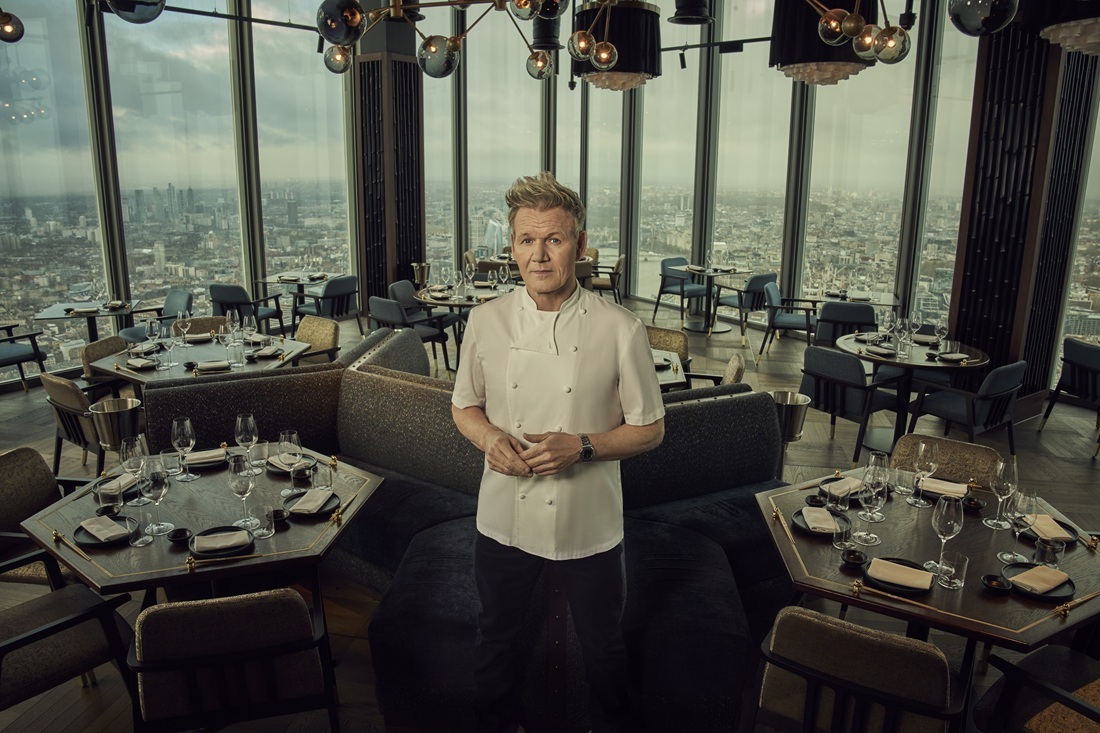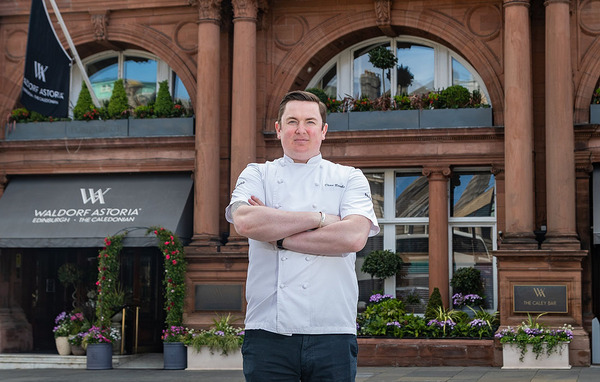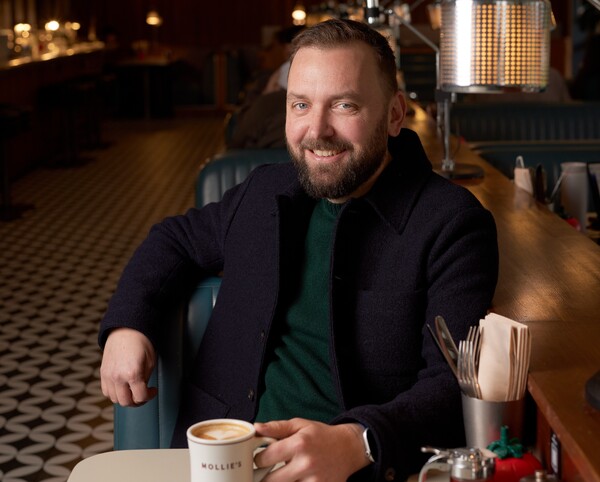The master of Italian cuisine: Gualtiero Marchesi
Gualtiero Marchesi, the first Italian to win three Michelin stars, showed that Italian cuisine could be as refined as French - not just rustic fare. Michael Raffael catches up with the 78-year-old, and finds that the man at the forefront of nouvelle cuisine is now questioning the merits of a new type of cooking - the molecular version
"To us, Gualtiero Marchesi is God," says Giorgio Locatelli, speaking on behalf of today's highly successful crop of Italian chefs, but also for restaurant-goers across the world. Marchesi won a Michelin star within six months of his first restaurant opening in Milan in 1977, and eight years later he was the first Italian to have three.
His risotto oro e zafferano was probably the most photographed speciality back in the era of nouvelle cuisine. It was a take on the emblematic Milano rice dish, with gold leaf that a friend gave him adorning the dish. And there's little or no cheese in it - an unusual, almost sacrilegious approach. Rather than this mantecatura, where butter and Parmigiano-Reggiano are beaten into the rice, Marchesi mixes in a beurre blanc sauce. It was France meets Italy, a theme that would run through his career.
Marchesi's other skill lies in combining ingredients, which, on their own, don't add up to much. Polenta, lumache e finocchi, for example, has a fried baton of polenta, mainly starch, has a bland taste and a soft texture. The snail brochette lying on it provides chewy protein. Next to it a slightly acid quarter of fennel supplies the vegetable element. For colour and moisture, there's a splash of parsley salsa verde.
The quantities and the balance of the ingredients, down to the type and size of the plate have all been thought through. A customer who ate it as one course in a three-course meal could feel cheated. But as one element in a planned degustation, the balance is perfect.
The Marchesi code
In The Marchesi Code, his book of philosophy and food, Marchesi argues that tradition shouldn't act as a brake. "We must not live by memories, but we must have memories," he insists. Doing things a little differently, along with elegance, is Marchesi's creed. "This is not to be confused with extravagance or luxury. I teach my chefs to be concrete in both tradition and innovation."
However, Marchesi becomes less lyrical when confronted by a certain politician's views. Earlier this year, President Sarkozy proposed that France's cuisine should be given special World Heritage status by UNESCO.
Marchesi doesn't blame the politician for trying, but believes that Italy has as much right to recognition: "Italy never competed with the French at a level of haute cuisine or presented itself as a single brand. It never had an Escoffier codifying recipes, but its culinary heritage is as rich."
Outsiders who identify Italy with pizza, tomato sauce and Jamie Oliver via River Café may wonder whether Italian cuisine should be truer to its roots, regional, rough and ready. "Why not?" he asks, "but it can also be more". Marchesi can't help the fact he travelled around the world. Nobody ever charged Escoffier with un-Frenchness for working in London or including a recipe for oxtail soup in Le Guide Culinaire.
And as a result of his journeying, Marchesi became central in that nouvelle cuisine movement. He travelled to Japan and was influenced by the presentation that he came across. The result wasn't wholly positive, though, according to the critics. Marchesi was tarred with the "designer food" brush that affected many French chefs of the time, the three itsy-bitsy lumps on a plate that leave the eater puzzled or resentful. That gold leaf on risotto has attracted ridicule, along with quattro paste - four mouthfuls of different pasta plated on a mirror.
"They judge my dishes harshly because they don't understand them," Marchesi insists. "In Italy, your mother's is the true recipe and your mother-in-law's isn't. Home cooking is intuitive, whereas chefs' cuisine has become "more intelligent."
Common thread
Tuscan, Ligurian, Venetian or Sicilian - they are all so different in many chefs' books. But Marchesi sees a common thread that binds them all, which is simplicity. Marchesi has the confidence to leave well alone. Few, even unadorned osterie, would dare offer Stracci con pesto, a pasta dish that takes no time to prepare.
Furthermore, Marchesi used to cook ossobuco and costeletta Milanese for his parents's hotel, based in Milan, while still in his teens. He has run the Ristorante di Erbusco in a country house hotel, the Albereta at Franciacorta, in northern Lombardy, and was appointed rector of Italy's first dedicated cookery school for chefs, ALMA, on its opening, in 2004. This establishment is closely allied to the slow food movement's University of Gastronomic Science in Pollenzo. Marchesi is steeped in Italian cooking.
"Chefs need to have culture," he says. "Without it they're not worth much. Yes, chefs have to master technique, yes, they need to come to grips with science, but above all they have to develop a sense of why they are doing what they do, what is taste, what is balance, what is creativity and how to achieve them, and that's what we're doing at ALMA.
"We don't try to change flavours," he insists. "We respect produce more. It would be hard or foolish to do anything else with them."
Does this invalidate the new cooking as pushed by Heston Blumenthal and Ferran Adrià, then?
Marchesi is ready to learn new things he doesn't cling to the past for the sake of it. Well into his thirties, almost 20 years into his career, he went to France to work at Ledoyen in Paris, le Chapon Rouge in Dijon and, finally, for the Troisgros brothers in Roanne.
"While I was there," he recalls, "everything they did was like going to school for me, down to the way they handled a frying pan."
Molecular gastronomy
But in terms of the new molecular gastronomy, Marchesi says there are limits. "I do want the school to be as much of a laboratory as a conservatory, but I fear the industrialisation of the kitchen. Chefs need to be touching, tasting, using all their senses in order to be stimulated in order to create. They have to engage with the raw materials and with the fire."
At least the position of the chef has changed. "Chefs used to be on the bottom rung of the social ladder." And he, more than anyone, has benefited from this shift.
For details of ALMA, visit www.alma.scuolacucina.it
STRACCI CON PESTO
"Stracci" translates as scraps or rags and is made by cutting a sheet of egg pasta roughly into triangles. The pesto in this recipe isn't pounded as the traditional Genoese recipe requires, but blended to a light-coating sauce. Ligurian basil is picked with the roots from single stem plants and sold in bunches. The basic Marchesi recipe is based on 200g basil leaves
INGREDIENTS
(Serves one)
60-80g stracci
Boiling salted water
1tbs olive oil
80ml pesto (approx)
1tbs toasted pine kernels
For the pesto
200g basil leaves
10g Parmigiano-Reggiano
10g toasted pine kernels
50ml Ligurian or Lombardy olive oil
30g ice
(Liquidise the ingredients to obtain a perfectly smooth, coating texture)
METHOD
Drop the stracci into boiling water. Drain after about one minute so they remain al dente. Toss them in a bowl with the olive oil. Arrange on a plate with some of the stracci folded over so they look like tissues. Spoon a generous amount of the sauce on top - if it seems too thick, you can add a little water. Sprinkle pine kernels on top.
www.caterersearch.com/marchesi
Marchesi's Career highlights
- 2008/09 Set to open new Milan restaurant Marchesino
- 2004 Hostaria dell'Orso awarded a Michelin star. Launches ALMA, the International School of Italian Cuisine
- 2002 Reopens Hostaria dell'Orso, in Rome per il Lotti receives a Michelin star
- 2001 Launches Gualtiero Marchesi per il Lotti restaurant near Place Vendome in Paris
- 1993 Moves Ristorante Gualtiero Marchesi to Erbusco, Franciacorta
- 1986 Founder member of Euro-Toques International, the association of European chefs
- 1985 Wins three Michelin stars at Ristorante Gualtiero Marchesi
- 1977 Opens Ristorante Gualtiero Marchesi in Milan, wins a Michelin star six months later

















